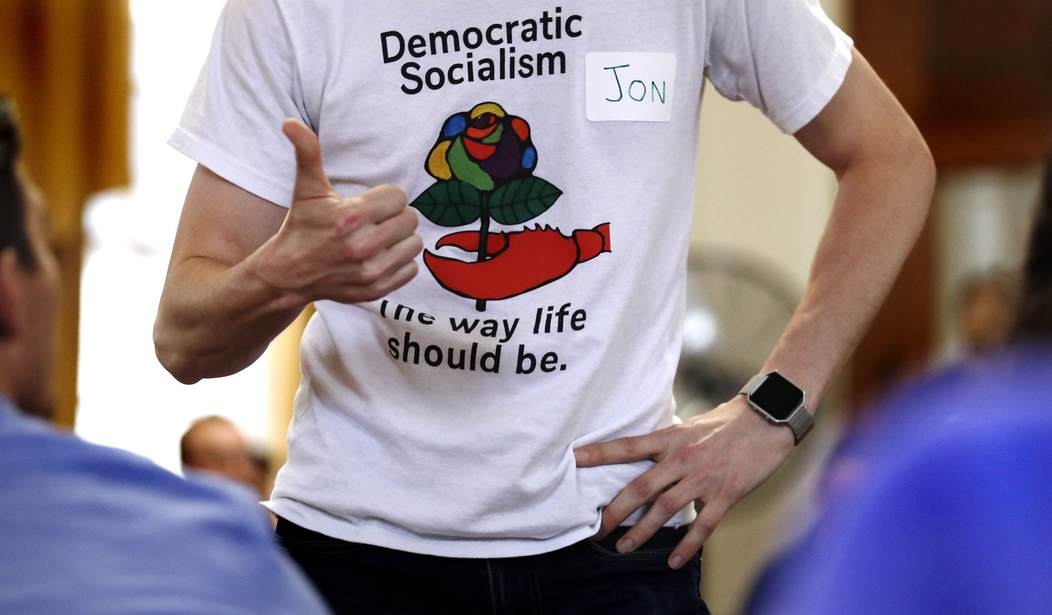Throughout the United States, socialism is enjoying a fresh wind of popularity. An April 2019 Gallup survey found that 43% of Americans believe socialism would be “a good thing” for the country (up from 25% in 1942). A full 47% of Americans say they would vote for a socialist presidential candidate. With those numbers, it should come as no surprise that in 2016, presidential candidate Bernie Sanders (America’s most popular “democratic socialist”) attracted more than 13 million votes during the Democratic primaries. More than 2 million of those voters were under the age of 30.
It’s easy to understand why Bernie appeals to young voters; after all, he campaigned on a platform of Medicare for all; free education and cancellation of all student debt; a “job guarantee;” a progressive tax system; and much more. And where Bernie came up short, Alexandria Ocasio-Cortez succeeded. As you may remember, AOC upset the New York incumbent, Rep. Joseph Crowley, 57 – 42 percent, on a platform that included Medicare for all; free college tuition; and a job guarantee. Sound familiar?
These silver-tongued promises are the (seemingly) sunny side of socialism. But they depend on – and eventually succumb to – the dark side of socialism, as set forth by its founding father, Karl Marx. Socialism (a term often used interchangeably with its close relative, communism) seeks the elimination of private ownership in favor of “social ownership” or state control. Merriam-Webster defines it this way: any of various economic and political theories advocating collective or governmental ownership and administration of the means of production and distribution of goods.
In layman’s terms, socialism trades economic freedom (and many other freedoms) for the “security” of state control. But don’t take my word for it.
The Democratic Socialists of America (DSA) – which has approximately 60,000 members (up from just 5,000 in November 2016) –calls for “cooperatives” and “social ownership,” in place of “big corporate bureaucracy.” It also seeks “greater democratic control” of private businesses in an effort to encourage accountability. The DSA proclaims that “many structures of our government and economy must be radically transformed.”
Recommended
Of course, like Bernie and AOC, the DSA champion the sunny side of socialism, promising that “a long-term goal of socialism is to eliminate all but the most enjoyable kinds of labor,” and pledging to spread any remaining “unappealing jobs” among as many people as possible.
That last one has a certain comedic appeal; perhaps the DSA should adopt the slogan “misery loves company.” But the implications of socialism for our great republic would be tragic. Socialism and communism are not variations of a democratic republic. They are its antithesis.
Historian Lee Edwards, Ph.D., describes it this way: “Socialists promise a classless society but create the prison camps of the Gulag and the Isle of Pines. They assure peace but engage in wars of national liberation. They abolish private property but depend upon the underground economy. They stamp out religion but worship Big Brother. They bring down corrupt dictators but institute a dictatorship of the Party.”
Of course, ask a proponent of socialism about increased government control, and they’ll hail it as a positive development. To quote Winston Churchill, proponents of socialism are quick to cast capitalism as the “predatory tiger.” It’s blamed for the wealth of the top 1%, deplored as the cause of the Great Recession of 2008, and labeled a cause of greed, “privilege,” and any number of social ills. The solution – they say – is to constrain or abandon the free market in order to obtain equality. Countries like Sweden are lifted up as examples of the utopia that socialism might provide.
The great irony is that Sweden is a shining example of the fact that free markets are the solution and not the problem. Swedish economist and Cato Institute fellow Johan Norberg explains: “Free markets and small government made Sweden rich. The experiment with socialism crashed us.” Indeed, while Sweden has “generous government entitlement programs” (as do its Nordic neighbors Norway, Finland, and Denmark), many of its policies would be very out of place at a Bernie Sanders rally. There are no minimum wage laws. There is school choice. The government sets limits on public spending and a “surplus goal” that helps keep its national debt low and has earned the county an AAA credit rating. In the 2019 Economic Freedom of the World Index, Sweden scored a 75.2, less than 2 points behind the United States (76.8) and above countries like Japan (72.1) and South Korea (72.3)
Thankfully, and despite the increased popularity of socialism as an ideal, Americans intuitively understand that the government is not better equipped than the private sector in matters related to the economy and wages. In fact, the same Gallup poll that found 43% of Americans believed socialism would be a good thing, also found that 62% believe the free market should control the economy and wages, and 68% believe it should be primarily responsible for the distribution of wealth. If these poll results sound contradictory, it’s because they are. Americans like the sound of socialism, but the substance is hard to swallow. The icing looks sweet but the cake is dry.
No reasonable American desires to see fellow citizens suffer from inadequate healthcare, drift aimlessly without work, or stumble under the weight of unreasonable debt. But socialism is not the answer. Socialism promises equality, but obtains it by punishing success and constraining free markets. It replaces our democratic republic – by the people and for the people – with a dictatorship of the proletariat.

























Join the conversation as a VIP Member